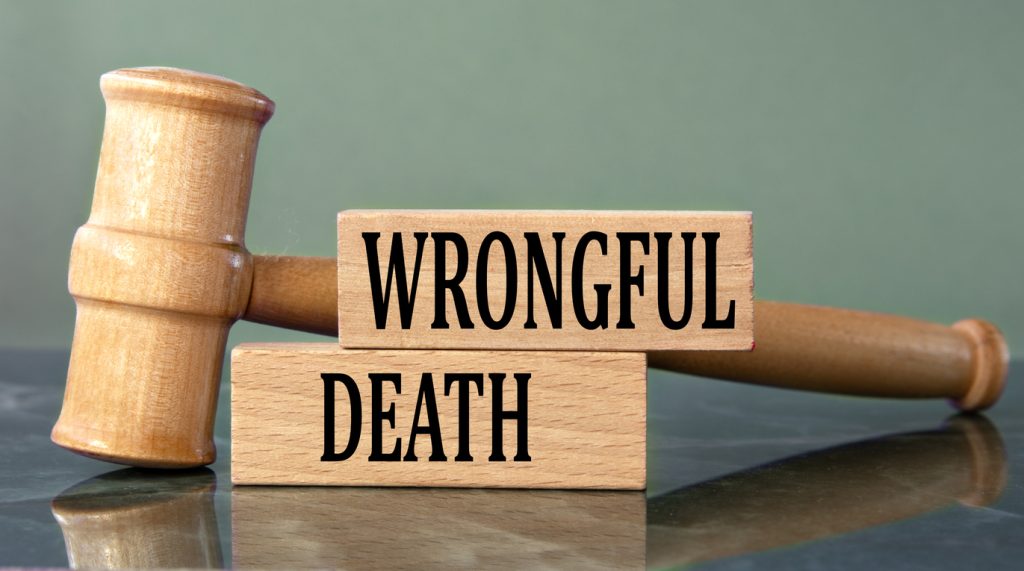- 2 Nov 2025

The aftermath of a tragic loss can leave families searching for answers, particularly when that loss is caused by negligence. Understanding Georgia wrongful death laws is essential in determining who may legally pursue justice on behalf of the deceased. These laws define who can file a claim, what damages may be recovered, and how the legal process unfolds. Families navigating this difficult path often face confusion, especially when multiple relatives feel the weight of responsibility in seeking accountability.
By carefully examining the framework of Georgia wrongful death laws, individuals can gain clarity about their rights and the proper order of claimants. This guide provides an in-depth look at the legal principles that control these cases, emphasizing who may step forward to file a claim under state law.
Understanding the Foundation of Georgia Wrongful Death Laws
At its core, a wrongful death action seeks to compensate family members for the full value of the life lost due to negligence, recklessness, or intentional misconduct. Georgia wrongful death laws are codified within the Official Code of Georgia Annotated, establishing both the right of action and the order in which certain relatives may bring a claim.
The concept balances the need for justice with the recognition that not every relative has an equal standing. By limiting claimants to a defined hierarchy, the law prevents overlapping lawsuits and ensures an orderly process for pursuing damages.
For a detailed overview of the statutory framework and damages recoverable, resources like the Georgia Code provide direct access to the legislative language guiding these claims.
Who Has the Primary Right to File Under Georgia Wrongful Death Laws
The first question families often ask is who legally holds the right to initiate a wrongful death lawsuit. According to Georgia wrongful death laws, the order of priority is clearly defined. The surviving spouse is granted the primary right to file a claim. If there is no spouse, the responsibility then passes to the children of the deceased. In situations where neither a spouse nor children are present, the parents of the deceased may step forward.
This hierarchy is critical, as it prevents disputes among relatives and ensures that only those authorized by statute have the standing to file. A spouse’s role is particularly significant, as they not only file the claim but also represent the interests of any surviving children, ensuring damages are shared appropriately.
The Role of Surviving Spouses in Georgia Wrongful Death Laws
When a spouse survives the deceased, they become the primary claimant. Georgia wrongful death laws give the spouse legal authority to file the lawsuit, recover damages, and manage the distribution of compensation between themselves and any children. This arrangement prevents multiple competing claims while ensuring that both the spouse and children benefit.
Importantly, even if there are several children, the spouse remains the official filer of the case. However, Georgia law guarantees that children will receive their fair portion of the recovery, subject to equitable division. This safeguard reflects the state’s intention to prioritize unity and fairness within grieving families.
Children as Claimants Under Georgia Wrongful Death Laws
If no surviving spouse exists, the right to file shifts to the children of the deceased. Under Georgia wrongful death laws, children are granted standing regardless of whether they are adults or minors. In cases where minors are involved, guardians may act on their behalf to ensure their rights are protected.
The presence of children without a spouse often creates unique legal complexities, particularly concerning guardianship and division of damages. Nevertheless, the law is structured to preserve the best interests of the children while recognizing their direct loss.
Parents’ Rights in Georgia Wrongful Death Claims
When neither a spouse nor children survive, parents may take on the legal right to file. Georgia wrongful death laws acknowledge parents as rightful claimants when no closer family exists to pursue justice. This provision reflects the recognition of parental bonds and the direct emotional and financial impact suffered by surviving parents.
Parents often file in situations where young adults without spouses or children pass away due to negligent acts. This legal avenue ensures accountability is still possible, even in cases where traditional dependents are absent.
When an Estate Representative Files Under Georgia Wrongful Death Laws
If no spouse, children, or parents survive, Georgia wrongful death laws provide that the administrator or executor of the deceased’s estate may file a claim. In this situation, damages are recovered on behalf of the estate and distributed according to inheritance laws.
The estate’s claim differs slightly, as it may include compensation for medical expenses, funeral costs, and pain and suffering endured prior to death. These claims ensure that even in the absence of close relatives, justice and accountability remain achievable.
Damages Recoverable Under Georgia Wrongful Death Laws
The damages available in wrongful death actions reflect the state’s definition of the “full value of the life of the decedent.” Georgia wrongful death laws divide these damages into two broad categories: economic and non-economic. Economic damages may include lost wages, benefits, and services the deceased would have provided, while non-economic damages account for the intangible value of life, such as companionship and guidance.
Additionally, a separate estate claim may pursue costs directly associated with the death, such as final medical expenses. Together, these categories ensure families are compensated not only for financial burdens but also for the deeper, immeasurable loss of human life.
Time Limits for Filing Under Georgia Wrongful Death Laws
A crucial element of pursuing justice is understanding the statute of limitations. Georgia wrongful death laws generally allow two years from the date of death to file a claim. This time frame can be tolled or paused in limited circumstances, such as when a criminal case is pending related to the death.
Families who delay may lose their right to pursue compensation, making it vital to understand the deadlines imposed by state law. The statute ensures timeliness while balancing the need for fairness in litigation.
Connection Between Wrongful Death and Negligence in Georgia
Every wrongful death action requires proof of negligence, recklessness, or intentional misconduct. Under Georgia wrongful death laws, the claimant must establish that the defendant owed a duty of care, breached that duty, and caused the death as a result.
This standard applies across a wide spectrum of cases, from fatal car accidents to medical negligence and workplace incidents. The principles of tort law govern the process, reinforcing the need for careful evidence gathering and adherence to procedural rules.
Public Policy Behind Georgia Wrongful Death Laws
The structure of Georgia wrongful death laws reflects not only legal principles but also public policy considerations. The law aims to balance fairness, prevent duplicative lawsuits, and preserve the rights of immediate family members while recognizing the financial and emotional devastation caused by an untimely death.
By limiting claimants to a specific hierarchy, the state ensures a consistent process that minimizes disputes among relatives. At the same time, the framework acknowledges the importance of accountability, ensuring that negligent actors face consequences for their actions.
Learning More About Georgia Wrongful Death Laws
For families navigating the painful process of filing a claim, resources such as Georgia wrongful death laws and claims provide detailed insight into rights and legal procedures. Combined with statutory sources like the Georgia Code and references to the Georgia Department of Law, individuals can build a comprehensive understanding of how these laws operate in practice.
Conclusion: The Importance of Understanding Georgia Wrongful Death Laws
Losing a loved one is a devastating experience, and the complexity of the legal system only adds to the difficulty. By understanding Georgia wrongful death laws, families gain clarity about who may file a claim, what damages are available, and how time limits shape the process. Whether through a spouse, child, parent, or estate representative, the law provides a structured pathway to seek justice and accountability for a preventable death.
In moments of loss, knowledge serves as a guiding light, ensuring that the right individuals pursue rightful claims under state law. Georgia wrongful death laws remain a cornerstone of accountability, preserving both justice for the deceased and protection for surviving family members.
Recent posts
- 17 Oct 2025
Categories
- Accident & Injury Law (54)
- AI (1)
- Copyright Law (1)
- Criminal & Civil Law (17)
- Disability Law (2)
- Driving Law (2)
- Employment Law (1)
- Estate Planning (2)
- Family & Relationship Law (29)
- Food and Drink (2)
- Gas Exposure (1)
- Health (1)
- Immigration Law (2)
- Injury Claim (1)
- Insurance Law (7)
- Legal (40)
- Lemon Law (4)
- Mediation (3)
- Medical Malpractice (1)
- Property & Business Law (9)
- Severance Agreement (1)
- Travel and Leisure (1)
- Uncategorized (12)
- Worker Compensation (2)




